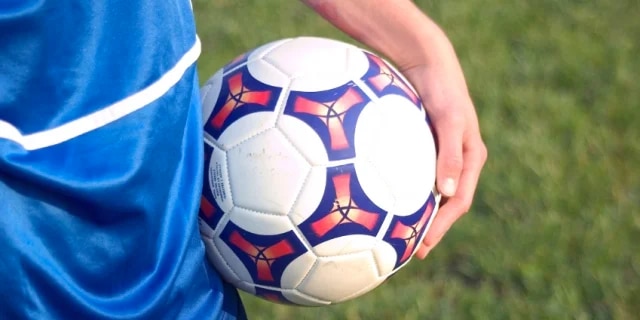In March, Bailey Medical Center, along with Hillcrest HealthCare System announced a new partnership with Tulsa Roughnecks as the official medical provider for the soccer team, providing day-to-day medical care and training for the players. Utica Park Clinic Owasso orthopedic surgeon, Dr. Jon Orjala, attends all home games to provide care to players as needed.
Not only are the Roughnecks fun to cheer on, they are also motivation to be active as well. “We hope the new Roughnecks will encourage our community to spend more time being physically active,” shares Hillcrest HealthCare System President & Chief Executive Officer Kevin Gross. Before your children hit the field this season, here are some considerations to help prevent common sports injuries and keep them healthy.
Can sport injuries be prevented?
Many sports injuries can be prevented by learning about the sport and making sure your child has the necessary protection.
Before signing your child up for a sport, you should consider:
•The temperature. Cooler weather is safer. Always make sure your child has access to plenty of water to stay hydrated and help regulate their temperature during play or practice.
•The playing surface. Some surfaces will reduce the impact on your child’s joints, reducing injuries.
•Gear safety. Broken or unsafe helmets, pads, or surfaces can cause injury. Check all your child’s protective gear to make sure they are working properly. Replace any broken or malfunctioning gear.
•Rules of play. Coaches, parents and players need to strictly adhere to the rules of the game to help protect participants. A team meeting at the beginning of the season is a good opportunity to go over the rules.
•Medical evaluations. A check up with your health care provider before the season can find hidden problems.
Your child will need the following:
•Protective devices – such as pads, helmets and gloves
•Time to gradually increases his or her activity to avoid doing “too much, too soon”
•Shoes that are appropriate for the sport and fit properly
•Rehabilitation of any previous injuries before continuing or starting a sport
•Safety gear and equipment
Safety gear should be sport-specific and may include such items as:
•Goggles
•Mouth guards
•Protective pads for the shin, elbow and knee
•Helmets
Make sure your child’s safety gear fits properly. Also, make sure all sports equipment, such as bats, baskets and goals, are in good working condition. Repair any damage or replace the item entirely. The playing area should be free from debris and water.
Physical Checkup
Before your child signs up for a particular sport, he or she should have a sports physical. These physicals can reveal your child’s physical strengths and weaknesses and help determine which sports are best. A sports physical is a health examination. Your child’s health care provider will ask about your child’s medical history and check his or her:
•Height and weight
•Heart and heart rate
•Lungs
•Abdomen
•Vision and hearing
• Joints
•Bones
•Muscles
Appropriate Age for Sports
Starting a sport too young may not be a good idea for your child. The American Academy of Pediatrics (AAP) says that age six is when children can understand the idea of teamwork. However, no two children are alike. Use your best judgement when enrolling your child in a new sport. That decision can be based on the following:
•Age
•Weight
•Build
•Physical development
•Emotional development
•Child’s interest in the sport
Note: AAP recommends that late-developing teens avoid contact sports until their bodies have developmentally “caught up” to their peers’ bodies.
Staying Healthy during Play
Children who play hard will sweat. This sweat must be replaced with equal amounts of fluids. This means your child should drink plenty of water before, during and after each practice or game. If your child doesn’t get enough fluids, he or she may get dehydrated.
Give your child about one cup of water (or a type of sports drink) every 15 to 20 minutes during heavy exercise. Avoid drinks that have carbonation and caffeine, such as soda, energy drinks or coffee. Also, children in hot, humid weather can become dehydrated even faster. You should consider decreasing, taking several breaks or stopping the activity when it is too hot.
The following are the most common symptoms of dehydration. However, each child may experience symptoms differently. Symptoms may include:
•Thirstiness
•Weakness
•Headache
•Dark-colored urine
•Slight weight loss
If your child shows signs of dehydration, make sure he or she gets fluids and a small snack immediately. The symptoms of dehydration may resemble other medical conditions or problems. Always check with your child’s provider for a diagnosis.
To find an Utica Park Clinic provider near you, click here.

